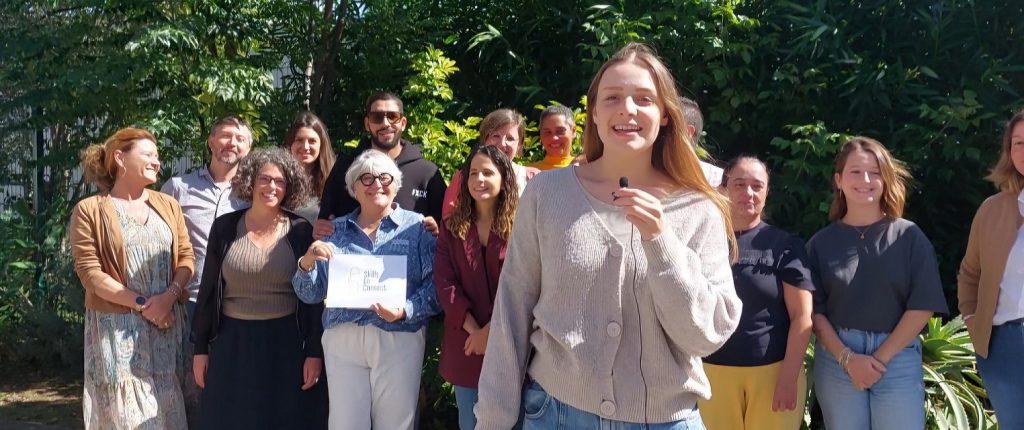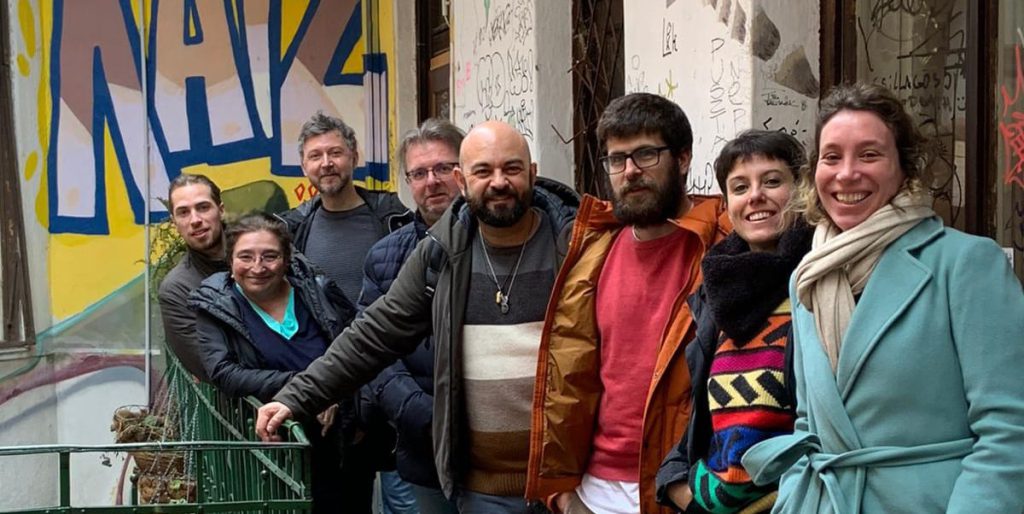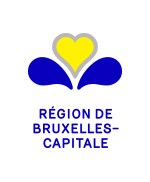test
Acquiring or improving digital skills: online training coming soon

On 26 and 27 September 2024, POUR LA SOLIDARITÉ-PLS took part in the transnational meeting of the Erasmus+ SKILLS TO CONNECT project, organised by the
Training in Italy to boost employability and active citizenship among young adults

45 young adults from Hungary, Italy and Belgium met in the village of Sant’Anna di Valdieri, in the Italian region of Piedmont, from 28 July
CONFERENCE – HERITAGE FOR A MORE INCLUSIVE AND SUSTAINABLE EUROPE

Mark your Agenda: When: 24 October 2024 from 9am to 4pm Place: SMART, Rue Coenraets 72, 1060 Bruxelles, Belgique Registration: Registration is free and compulsory at this
A video festival to boost employability and active citizenship among young adults

Running from January 2024 to December 2025, the BE UNIT project will get young adults from Belgium, Italy and Hungary, all aged between 18 and
BE UNIT: Improving the employability of young people in the audiovisual sector and their active citizenship

Context At the root of this project, the partners identified two challenges facing young adults in Italy, Hungary and Belgium: Some young adults have low
Succeeding in the ecological transition of associations: A look back at the conference

Organised by POUR LA SOLIDARITÉ-PLS with its TEDDA partners on 30 November 2023 in Brussels, the event brought together more than 60 people including academics, researchers,
SKILLS TO CONNECT: Digital skills at the service of seniors

Context There is an increased need for digital inclusion for professionals working with the elderly who, as front-line workers, are often faced with technological obstacles
CICLE – Together for complete and inclusive cycle logistics training

Over the last ten years, the bicycle logistics sector has grown rapidly and very organically, making its growth unstructured, heterogeneous and sometimes improvised. Moreover, it
Reception of Unaccompanied Minors in Europe: the importance of multi-actor collaboration

Reception systems for unaccompanied minors vary considerably across the European Union, but a common thread is the involvement of a wide range of actors in the





